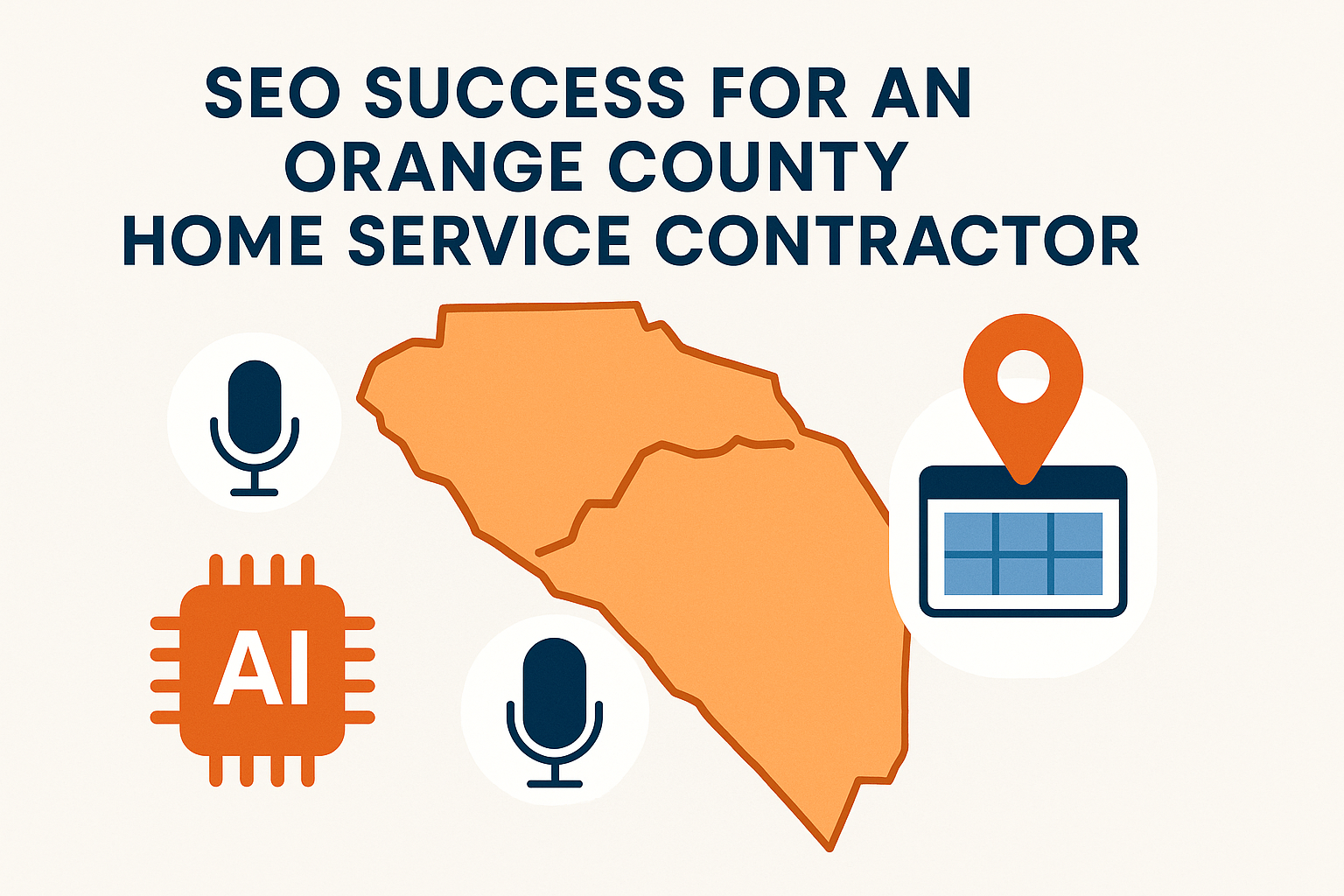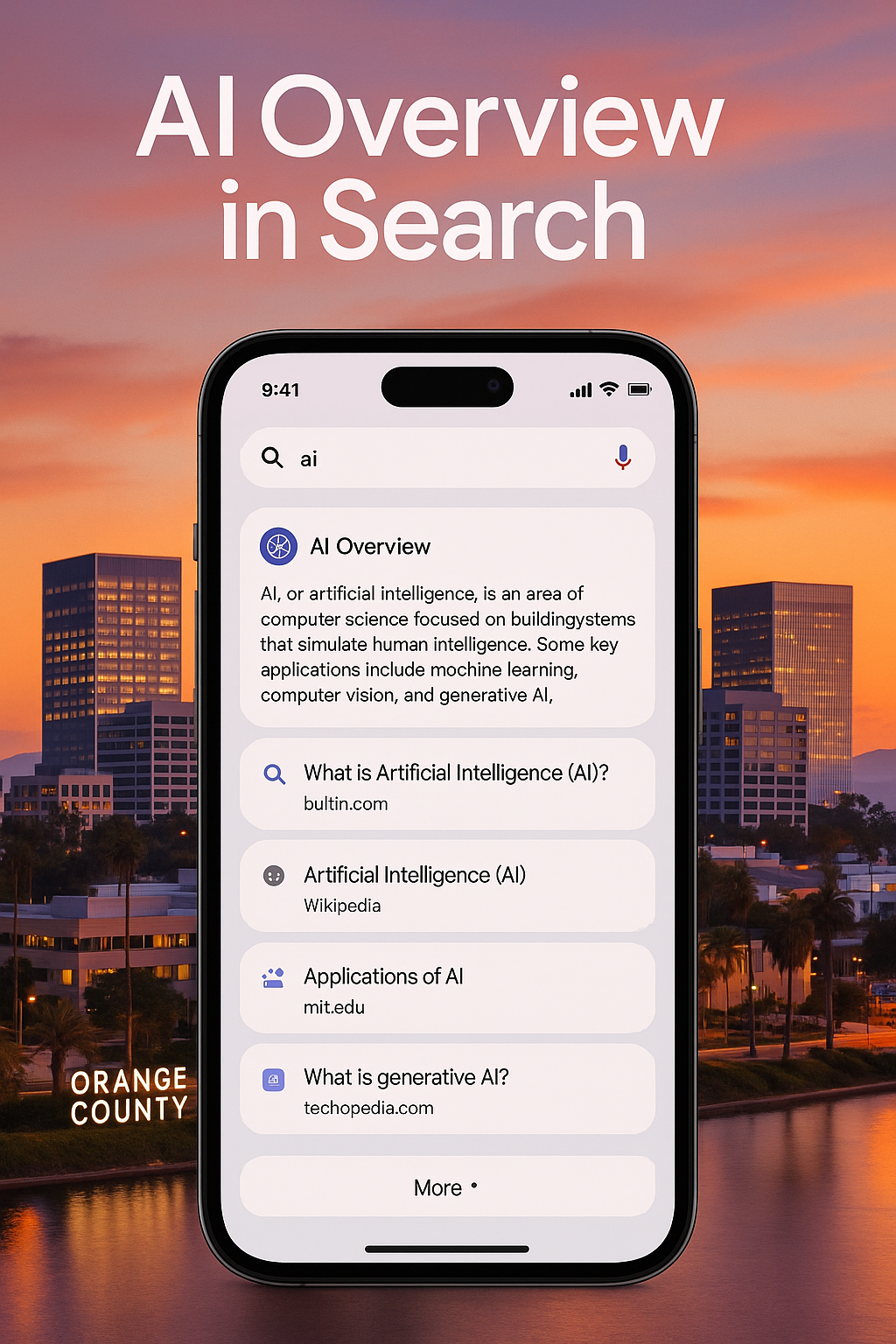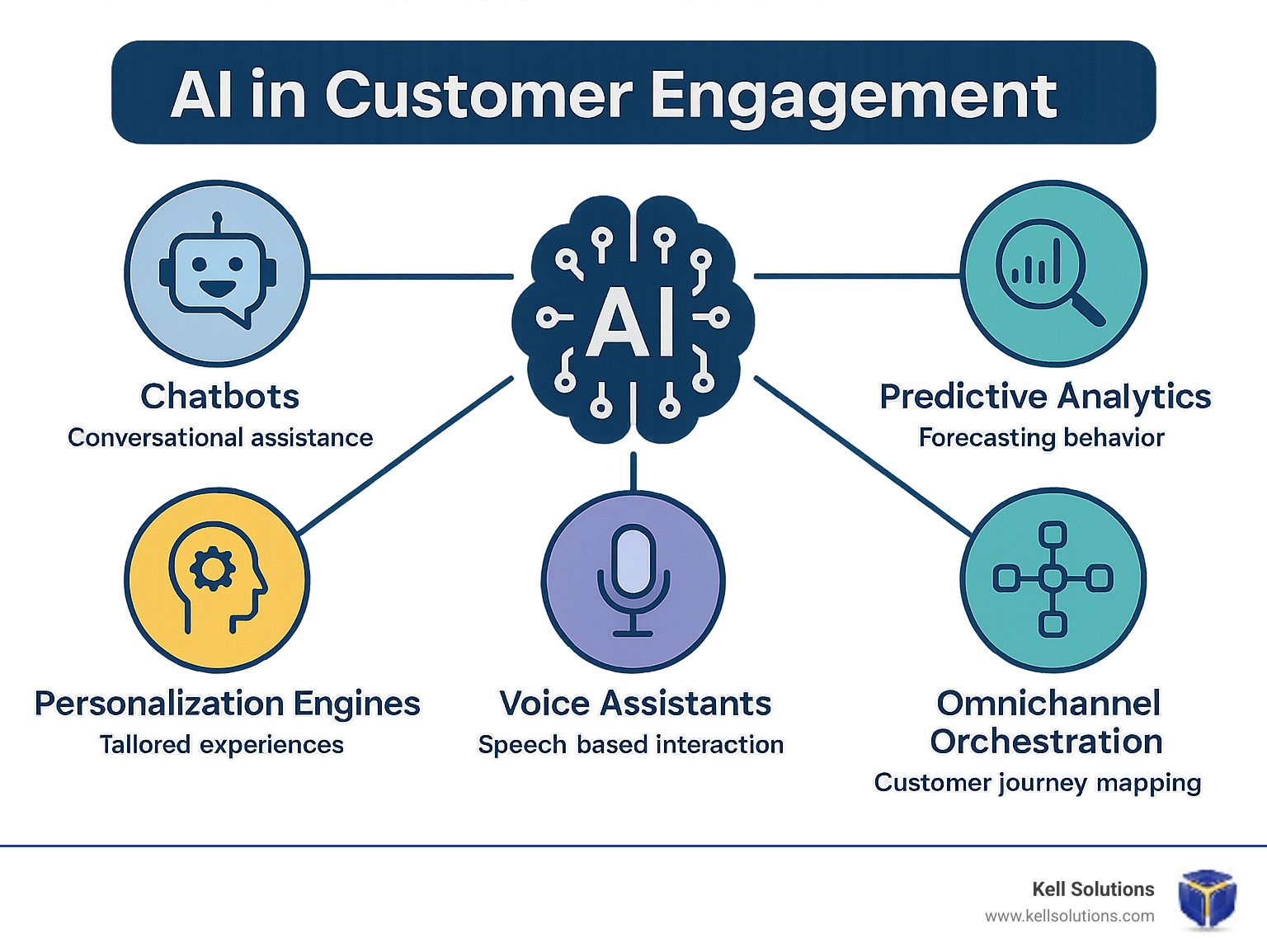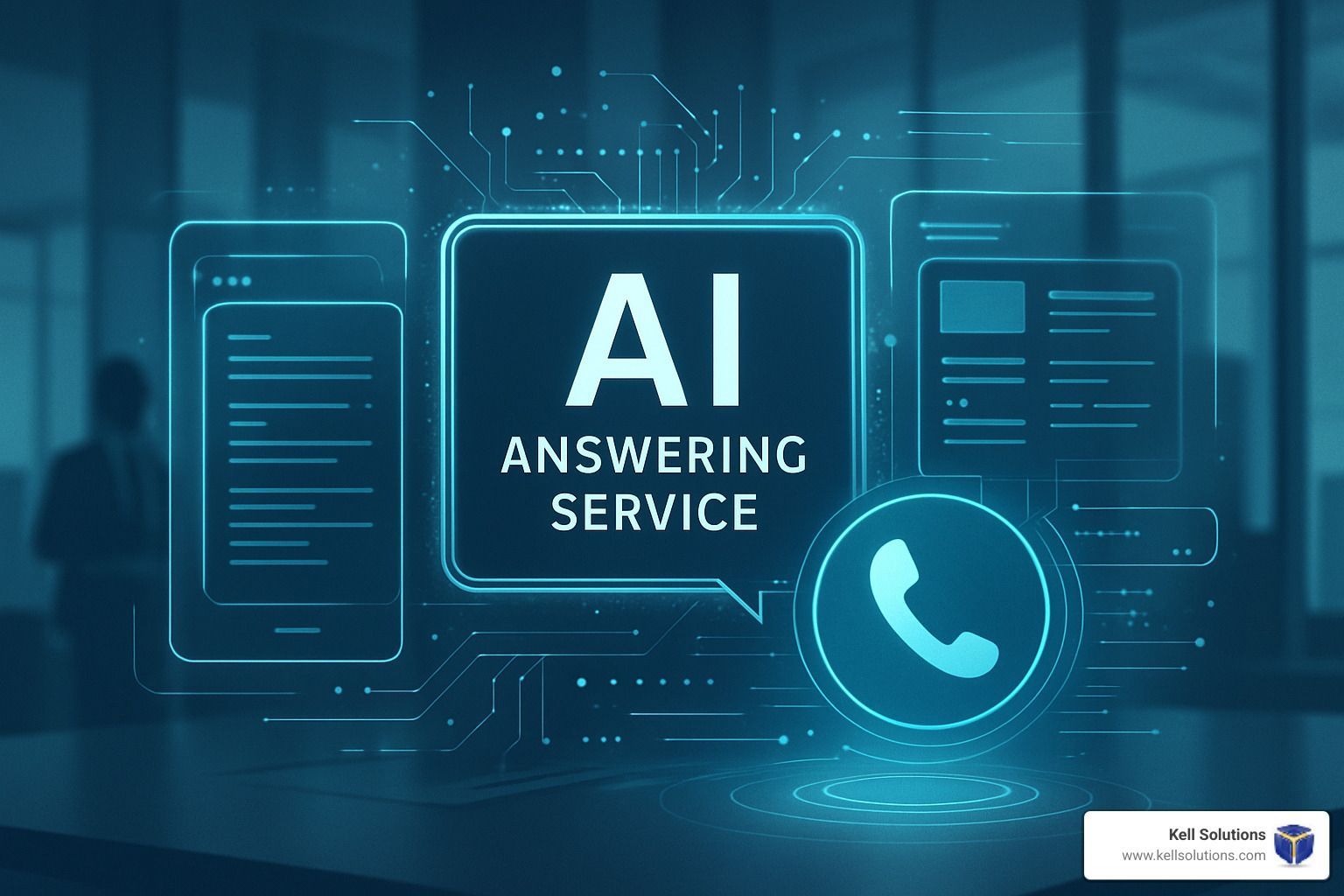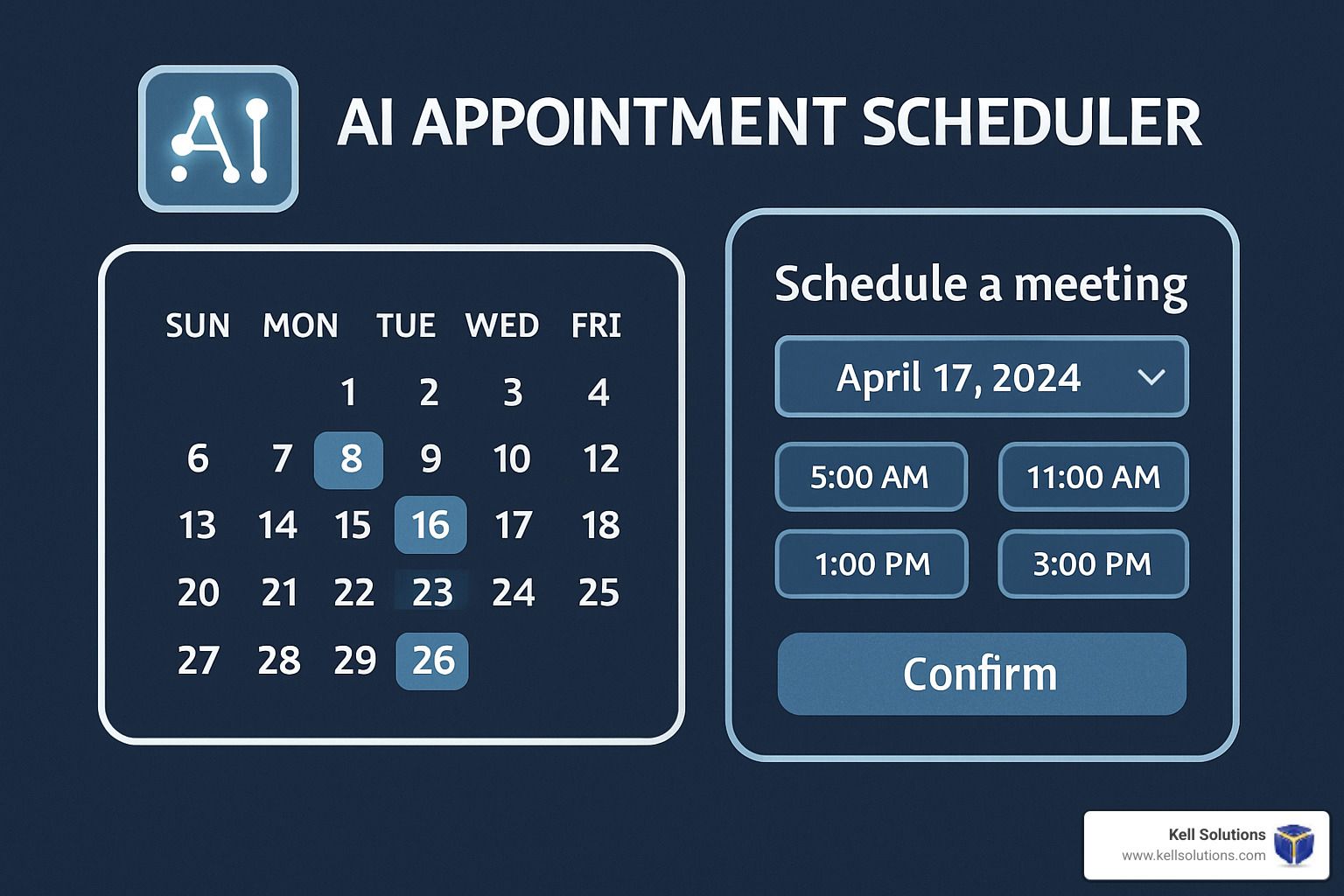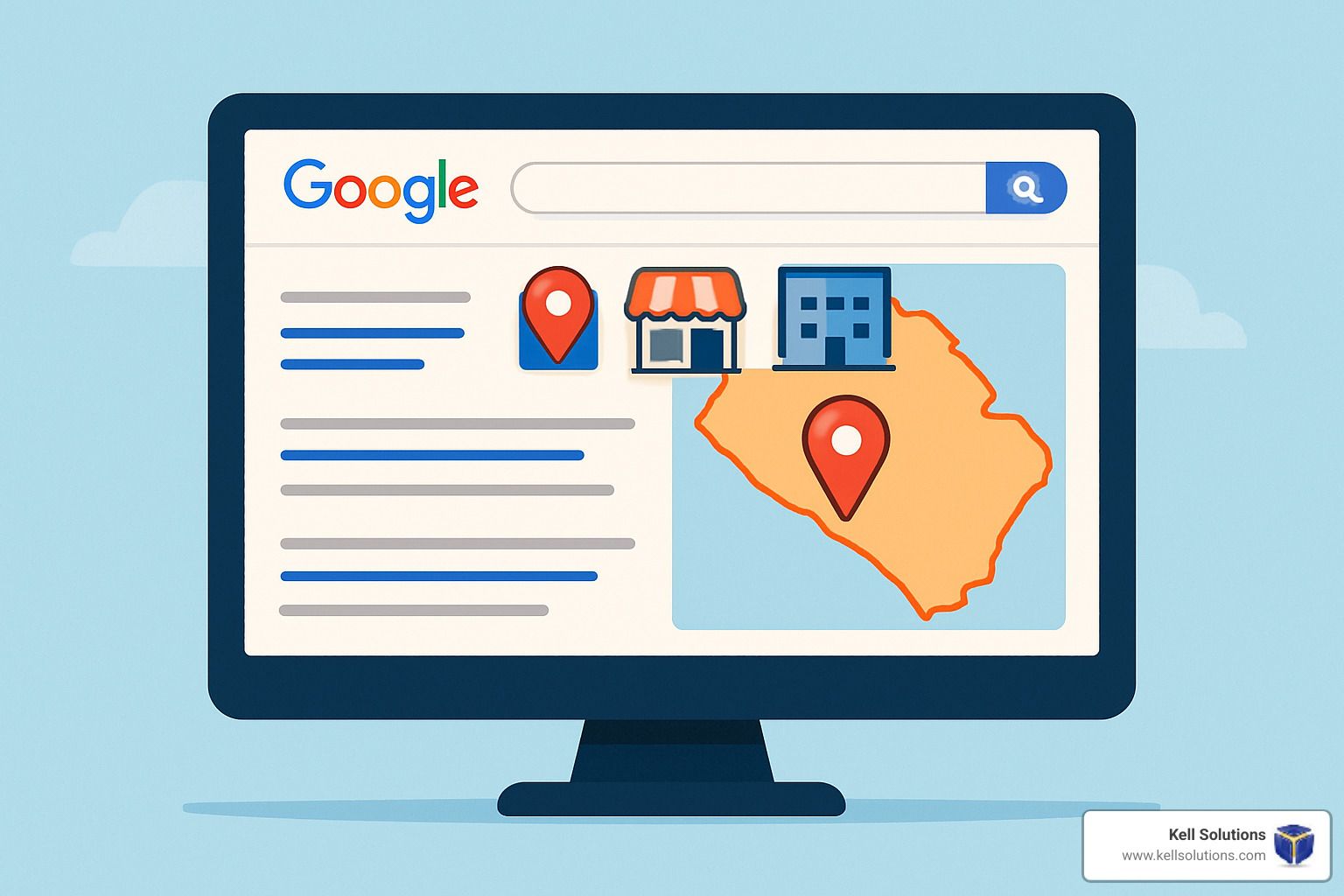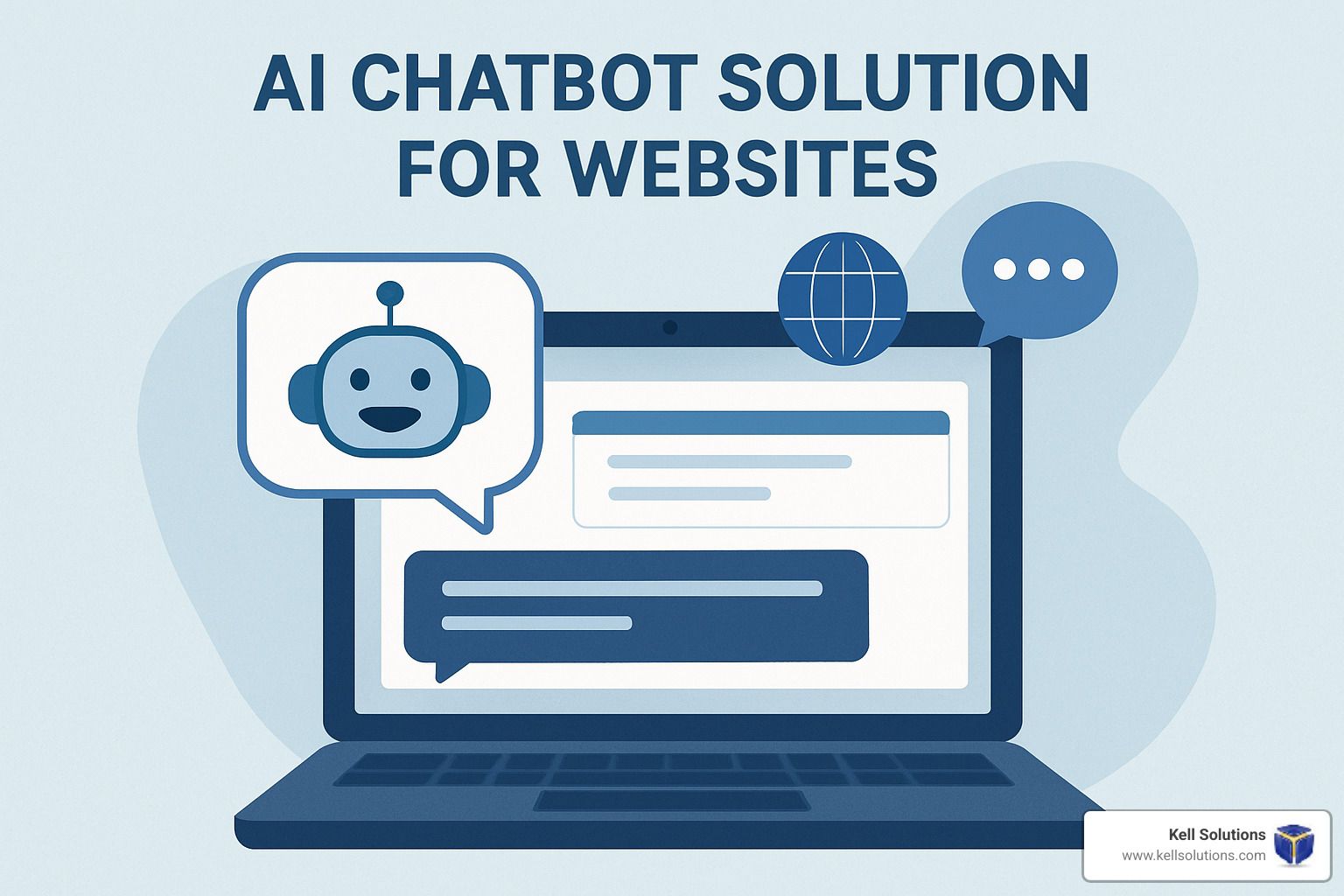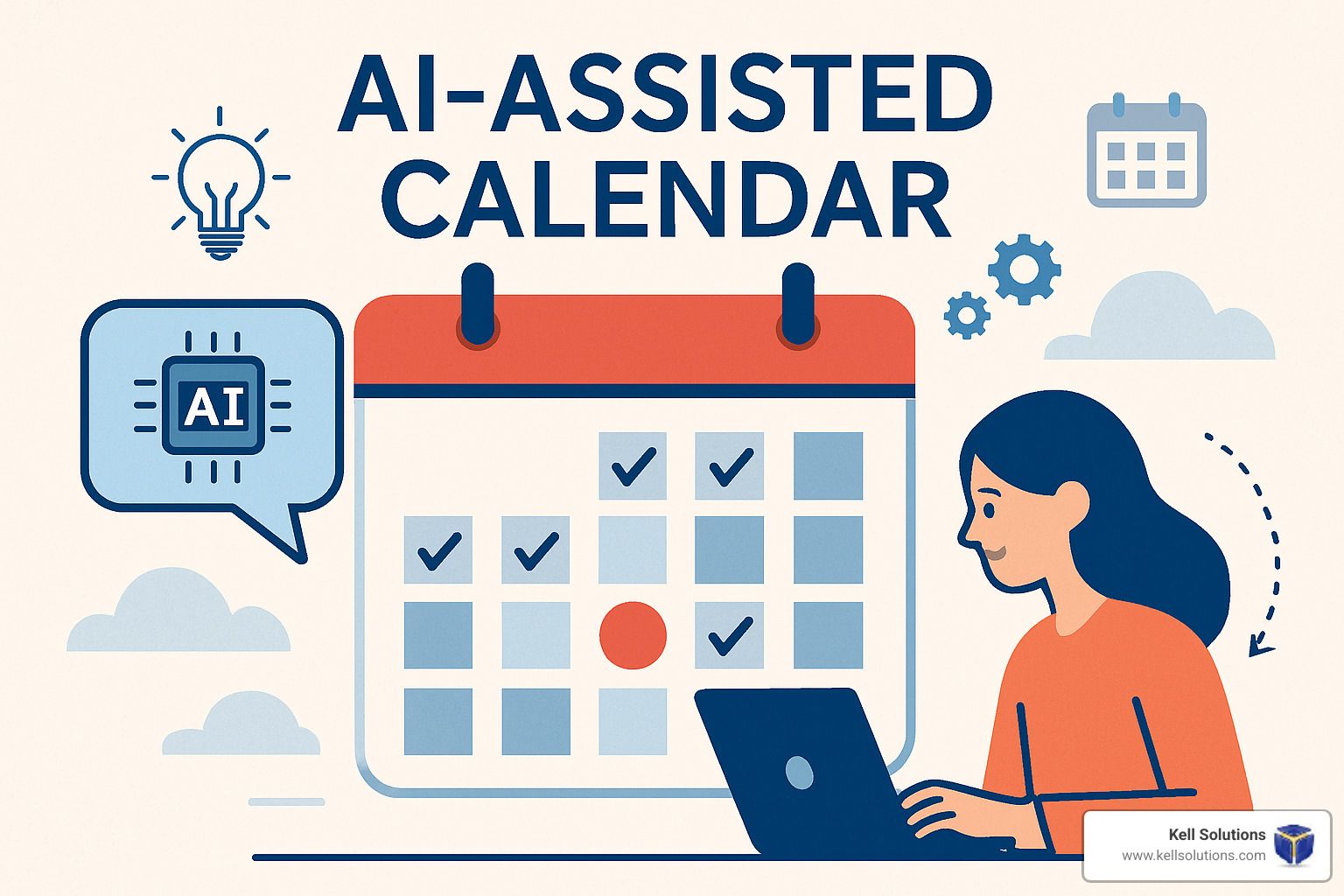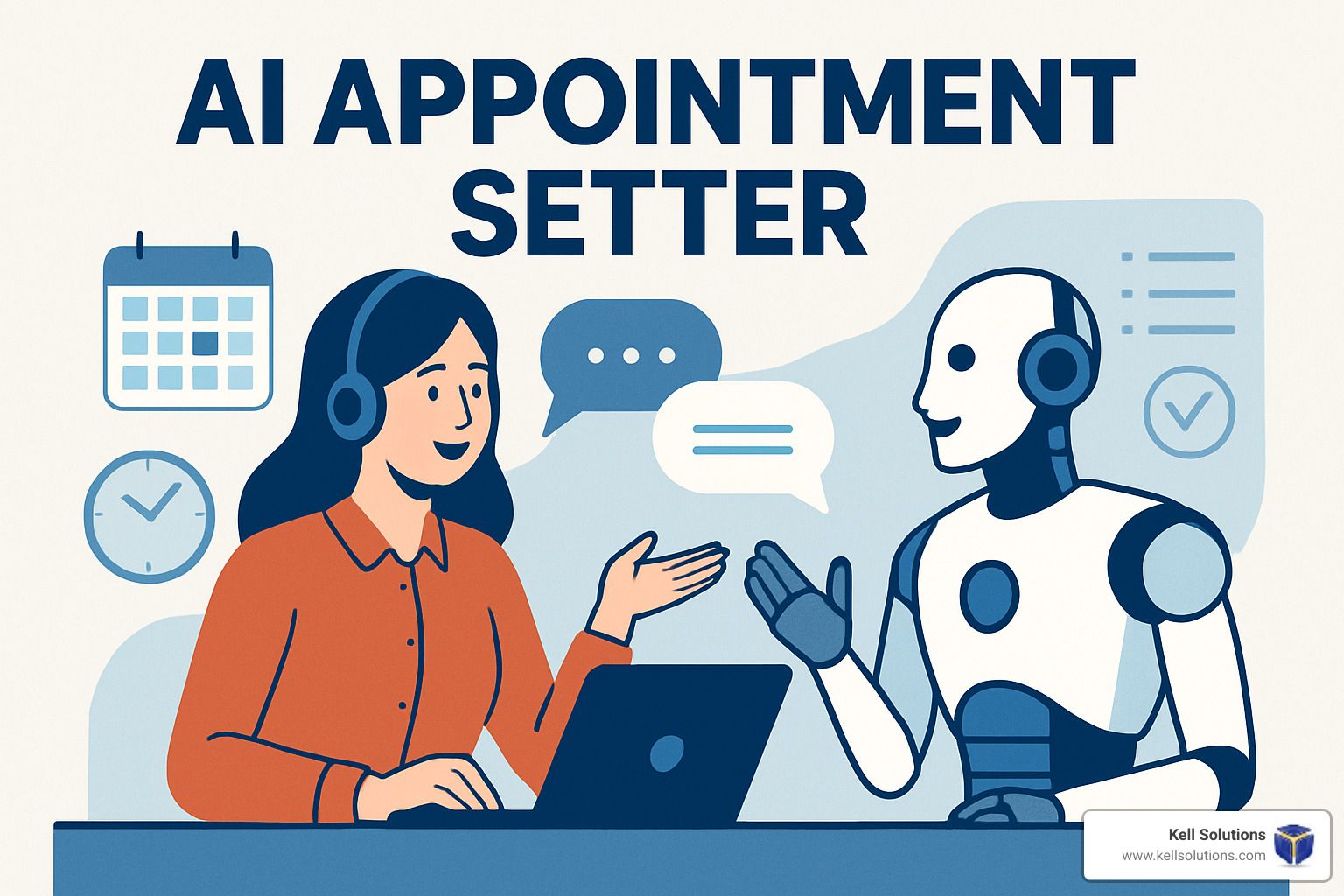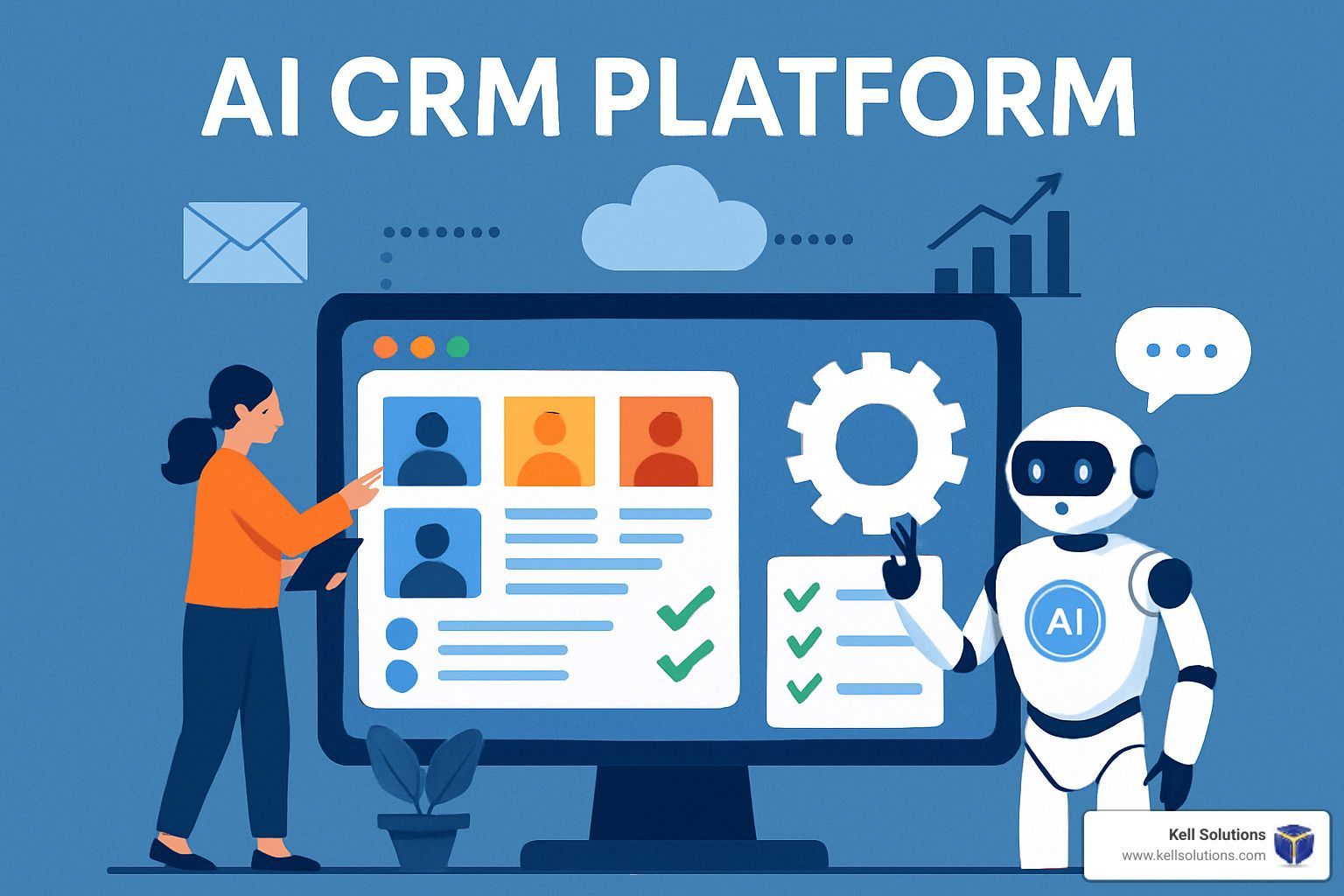AI Virtual Assistant Benefits for Small Business Success
From Automation to Analytics

Welcome to a world where small businesses can thrive using cutting-edge technology without breaking the bank. AI virtual assistants are no longer a futuristic dream; they are a practical tool available today, designed to transform how businesses operate. Let's dive into the benefits these digital helpers bring to the table, empowering small businesses to achieve more with less.
Key Takeaways
- AI virtual assistants can provide 24/7 customer support, ensuring businesses never miss a call or message.
- They significantly reduce operational costs, with potential savings on payroll expenses and overheads.
- By automating routine tasks, AI assistants free up time for employees to focus on strategic growth activities.
- They enhance customer interactions with personalized responses and multilingual support.
- AI virtual assistants improve lead conversion rates by efficiently managing inquiries and follow-ups.
AI Virtual Assistant Benefits for Small Business Success
Imagine running your business without the constant worry of handling every customer query personally or managing every single operational task. AI virtual assistants make this possible. They are revolutionizing the way small businesses function, allowing owners to focus on what truly matters—growing their business.
The Importance of AI in Modern Small Business
In today's fast-paced world, small businesses must keep up with ever-changing customer demands and operational challenges. AI virtual assistants are crucial in this transformation. They offer a scalable solution that adapts to the needs of businesses, whether it's handling customer service inquiries or managing scheduling tasks.
Most importantly, these digital assistants allow businesses to provide a level of service that was once only achievable by larger corporations with extensive resources. They level the playing field, offering small businesses a chance to compete in the big leagues.
24/7 Customer Support
One of the standout features of AI virtual assistants is their ability to provide round-the-clock customer support. Unlike human staff, these assistants don't need breaks or sleep, which means your business can remain operational 24/7. This is particularly beneficial for capturing leads or addressing customer concerns outside of traditional business hours.
Consider a small retail business that often receives customer inquiries after hours. An AI virtual assistant can handle these interactions, providing immediate responses and ensuring no potential sales are lost. This level of service can enhance customer satisfaction and loyalty.
Cost Efficiency and Financial Savings
Running a small business often means keeping a close eye on expenses. AI virtual assistants offer a cost-effective alternative to hiring additional staff. They handle multiple tasks simultaneously without the need for salaries, benefits, or training costs.
Besides that, AI assistants can help minimize operational overheads by reducing the need for physical office space and resources. The financial savings achieved can then be reinvested into the business for growth and development.
Enhancing Professionalism and Brand Image
Professionalism is key to maintaining a strong brand image. AI virtual assistants contribute to this by ensuring consistent and accurate communication with customers. They can be programmed to align with your brand's tone and style, providing a seamless experience for anyone interacting with your business.
Improved Lead Conversion Rates
AI virtual assistants excel at managing leads efficiently. By quickly responding to inquiries and following up on potential sales opportunities, they increase the likelihood of converting leads into customers. This proactive approach ensures no opportunity slips through the cracks, which is crucial for small businesses looking to expand their customer base.
Task Automation for Increased Productivity
Routine tasks can consume valuable time and resources. AI virtual assistants automate these tasks, freeing up employees to focus on more strategic activities. Whether it's scheduling appointments, managing emails, or processing orders, these assistants handle it all with precision and speed.
As a result, employees can dedicate their efforts to areas that directly contribute to business growth, such as product development or customer relationship management. This shift in focus can significantly boost overall productivity and efficiency.
How AI Virtual Assistants Improve Customer Experience
Customer experience is a critical component of any successful business. AI virtual assistants enhance this experience by offering personalized, efficient, and responsive service. Let's explore how they achieve this.
Instant Responses to Common Inquiries
Customers expect quick answers to their questions. AI virtual assistants provide instant responses to common inquiries, ensuring customer satisfaction and reducing wait times. By handling frequently asked questions, these assistants free up human employees to address more complex issues, creating a balanced and efficient customer service approach.
Multilingual Support for a Diverse Clientele
In today's global market, businesses often interact with clients from various linguistic backgrounds. AI virtual assistants offer multilingual support, which is crucial for catering to a diverse clientele. By understanding and responding in multiple languages, these assistants ensure that language barriers do not hinder customer service.
Consider a local bakery that attracts tourists from around the world. An AI assistant can communicate in several languages, helping non-native speakers place orders or inquire about products effortlessly. This capability not only enhances customer satisfaction but also broadens the business's reach.
"AI virtual assistants can communicate fluently in over 100 languages, making them indispensable for businesses targeting international markets."
Moreover, providing multilingual support demonstrates a commitment to inclusivity and respect for cultural diversity, which can enhance the business's reputation and attract a wider audience.
Personalized Customer Interactions
Personalization is a powerful tool in enhancing customer experience. AI virtual assistants excel at this by using data analytics to tailor interactions based on individual customer preferences and behaviors. They can remember past interactions, suggest products, and offer personalized recommendations, making each customer feel valued and understood.
For instance, an online clothing retailer could use an AI assistant to recommend outfits based on a customer's previous purchases or browsing history. This personalized approach can lead to increased customer satisfaction and loyalty, as clients appreciate the attention to their unique needs.
Streamlining Appointment Scheduling
Scheduling appointments can be a time-consuming task, often involving back-and-forth communication. AI virtual assistants streamline this process by automating appointment bookings and sending reminders. They can integrate with calendar systems to check availability and propose suitable times, minimizing scheduling conflicts.
Imagine a small dental clinic that relies on manual scheduling. An AI assistant can handle appointment bookings, confirmations, and cancellations, freeing up staff to focus on patient care. This efficiency not only saves time but also reduces the likelihood of errors, ensuring a smooth and professional service.
Financial Benefits of Deploying AI Virtual Assistants
The financial advantages of using AI virtual assistants are significant, making them an attractive investment for small businesses. By reducing costs and increasing revenue, these digital helpers contribute to a healthier bottom line.
Reducing Payroll Costs
One of the most immediate benefits of AI virtual assistants is the reduction in payroll expenses. By handling tasks that would typically require additional staff, businesses can maintain a lean workforce without compromising on service quality. This reduction in headcount translates to substantial savings on salaries, benefits, and training costs.
For example, a small marketing firm could use an AI assistant to manage client communications, eliminating the need for a full-time receptionist. This not only cuts costs but also allows the firm to allocate resources more strategically, such as investing in marketing campaigns or new technology.
Minimizing Operational Overheads
Operational overheads, such as office space, utilities, and equipment, can quickly add up. AI virtual assistants help minimize these costs by enabling remote work and reducing the need for physical office space. Businesses can operate more efficiently, with less reliance on costly infrastructure.
Besides that, AI assistants can automate routine administrative tasks, such as data entry and report generation, reducing the need for office supplies and equipment. This streamlined approach results in a more cost-effective operation, allowing businesses to focus their financial resources on growth initiatives.
Increased Revenue Through Upselling and Cross-Selling
AI virtual assistants can drive revenue growth by effectively managing upselling and cross-selling opportunities. By analyzing customer data and purchase history, they can suggest complementary products or services, encouraging customers to spend more.
For instance, an AI assistant in an electronics store could recommend a premium warranty or accessory to a customer purchasing a new device. This targeted approach not only boosts sales but also enhances the customer experience by offering valuable suggestions.
Integrating AI Assistants into Small Business Operations
Integrating AI virtual assistants into your business operations is a strategic move that requires careful planning and execution. By following a structured approach, businesses can maximize the benefits of AI technology.
Steps for Successful AI Implementation
Implementing AI virtual assistants involves several key steps to ensure success. Here is a straightforward approach to guide you through the process:
- Assess Needs: Identify the areas where AI can add the most value, such as customer service, sales, or operations.
- Select the Right Platform: Choose an AI solution that aligns with your business goals and integrates seamlessly with existing systems.
- Plan the Implementation: Develop a detailed plan that outlines the implementation timeline, budget, and resources required.
- Train Your Team: Educate your staff on how to work with AI assistants, ensuring they understand the technology and its benefits.
- Monitor and Optimize: Continuously track the performance of your AI assistants and make necessary adjustments to optimize their effectiveness.
"Successful AI implementation requires a clear strategy, the right technology, and ongoing evaluation to achieve the desired outcomes."
By following these steps, businesses can effectively integrate AI assistants into their operations, enhancing productivity and driving growth.
Training and Monitoring AI Performance
Training and monitoring are critical components of AI implementation. Ensuring that your AI assistants are well-trained and performing optimally is essential for maximizing their impact.
Start by providing comprehensive training on your business processes and customer interactions. This will help the AI understand your operations and deliver accurate responses. Additionally, regularly monitor performance metrics to identify areas for improvement and ensure that the AI is meeting your business objectives.
Through continuous training and monitoring, businesses can ensure that their AI assistants remain effective and contribute to long-term success.
Choosing the Right AI Platform
Selecting the right AI platform, like VoiceGenie AI, is a critical decision that can influence the success of your AI implementation. Here are some key factors to consider:
- Compatibility: Ensure the platform integrates smoothly with your existing systems and software.
- Scalability: Choose a solution that can grow with your business, accommodating increased demand and complexity.
- Usability: Opt for a platform with an intuitive interface that is easy for your team to learn and use.
- Support and Maintenance: Look for a provider that offers robust support and regular updates to keep your AI running efficiently.
Taking the time to evaluate these factors will help you choose a platform that aligns with your business needs and maximizes the benefits of AI technology.
Future Implications of AI in Small Businesses
The future of Artificial Intelligence in small businesses is promising, with numerous opportunities for innovation and growth. As technology continues to evolve, businesses that embrace AI will likely gain a competitive edge and achieve greater success.
Trends in AI Development
AI technology is advancing rapidly, with new developments emerging regularly. Key trends include enhanced natural language processing, improved machine learning algorithms, and increased focus on ethical AI practices. Staying informed about these trends will help businesses leverage the latest innovations to their advantage.
The Role of AI in Business Expansion
AI can play a pivotal role in business expansion by streamlining operations, improving customer engagement, and identifying new market opportunities. For example, AI-driven analytics can provide valuable insights into consumer behavior, enabling businesses to tailor their strategies and reach new audiences effectively.
Moreover, AI's ability to automate routine tasks allows businesses to focus on strategic growth initiatives, such as product development and market expansion. This shift in focus can lead to increased revenue and a stronger market presence.
AI as a Competitive Edge
In a competitive business landscape, AI offers a significant advantage by enhancing efficiency, reducing costs, and improving customer experience. Businesses that adopt AI early can differentiate themselves from competitors, offering superior service and innovative solutions.
By leveraging AI technology, small businesses can punch above their weight, competing with larger organizations and achieving long-term success. As AI continues to evolve, its role as a competitive edge will only become more pronounced.
FAQs
Let's address some common questions about AI virtual assistants and their role in small businesses.
What is an AI virtual assistant?
An AI virtual assistant is a software application that uses artificial intelligence to perform tasks typically handled by a human assistant. These tasks can include answering customer inquiries, managing schedules, processing orders, and more. AI virtual assistants are designed to improve efficiency and enhance customer service by providing quick, accurate responses and automating routine activities.
How can AI assist with customer service?
AI virtual assistants enhance customer service by providing 24/7 support, handling common inquiries, and offering personalized interactions. They can respond instantly to customer questions, reducing wait times and increasing satisfaction. Additionally, AI assistants can manage high volumes of inquiries, allowing human staff to focus on more complex issues and ensuring a balanced, efficient customer service approach.
Is AI implementation expensive for small businesses?
While there is an initial investment in AI technology, the long-term cost savings and efficiency gains often outweigh the expenses. AI virtual assistants reduce payroll costs, minimize operational overheads, and increase revenue through improved lead conversion and customer interactions. Many AI solutions are scalable and flexible, making them accessible to businesses of all sizes.
What should I consider when selecting an AI virtual assistant platform?
When choosing an AI virtual assistant platform, consider factors such as compatibility, scalability, usability, and support. Ensure the platform integrates with your existing systems, can grow with your business, and is easy for your team to use. Additionally, look for a provider that offers robust support and regular updates to keep your AI running efficiently.
By carefully evaluating these factors, you can select a platform that meets your business needs and maximizes the benefits of AI technology. Remember, the right AI solution can transform your business operations and drive long-term success.
📚 About the Author
Gregg Kell is a seasoned digital marketing strategist and founder of Kell Web Solutions, Inc., helping professional service firms grow through innovative AI-powered solutions like VoiceGenie AI. With over 20 years of experience in web development, lead generation, and business automation, Gregg is passionate about helping small businesses maximize growth and profitability through cutting-edge technologies.
When he’s not helping businesses boost their bottom line, Gregg enjoys life by the beach in Laguna Beach, California, with his wife Debbie, celebrating over 40 years of marriage and entrepreneurial adventures.
👉 Explore More from Gregg:
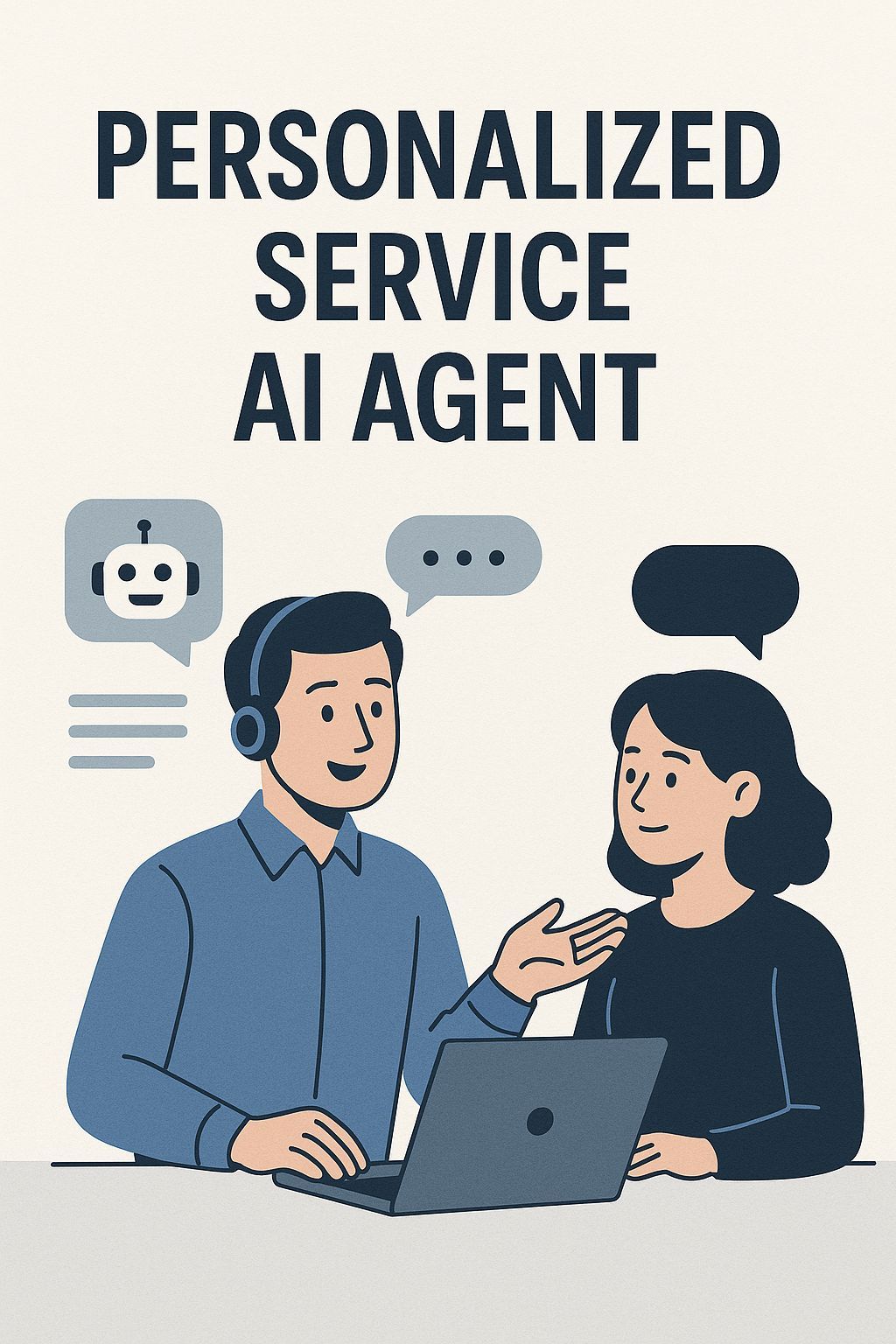

Orange County HVAC Google AI Overview Domination: 7 Proven Strategies to Capture Featured AI Results






